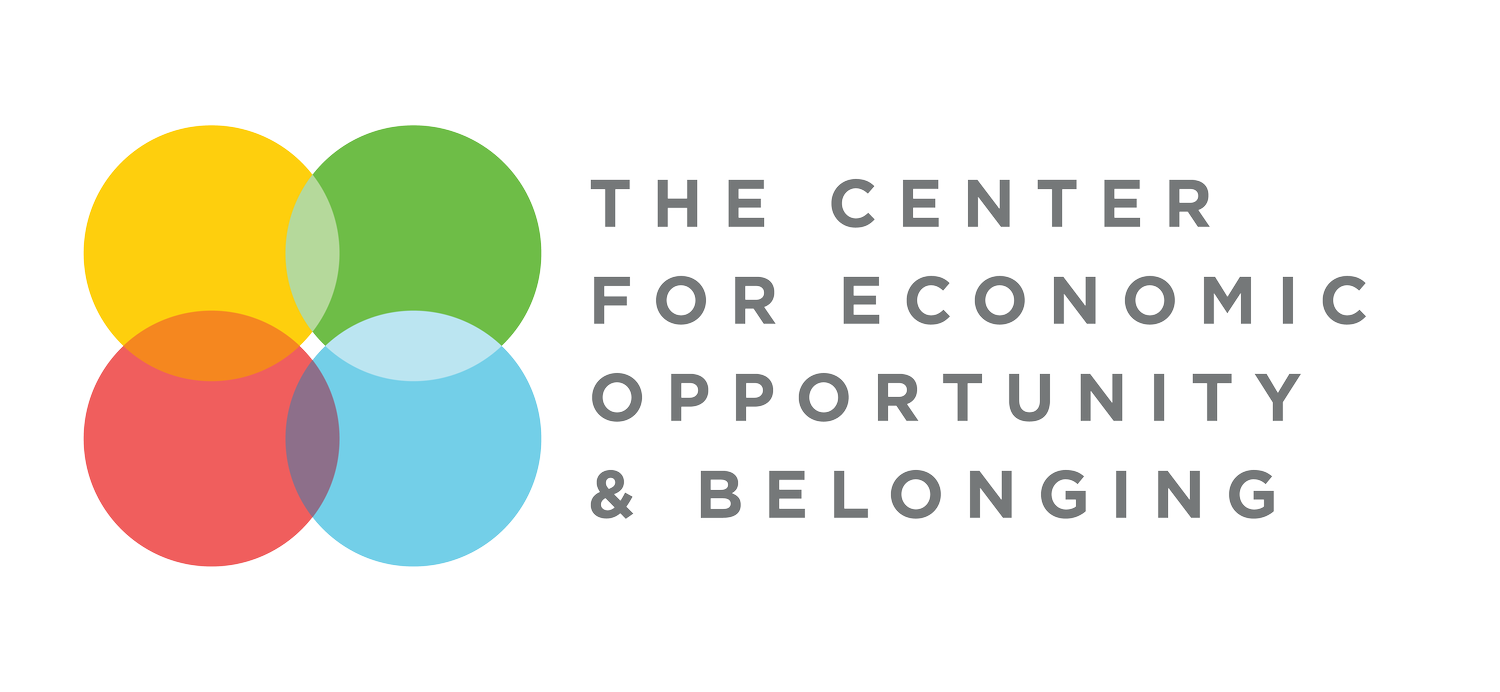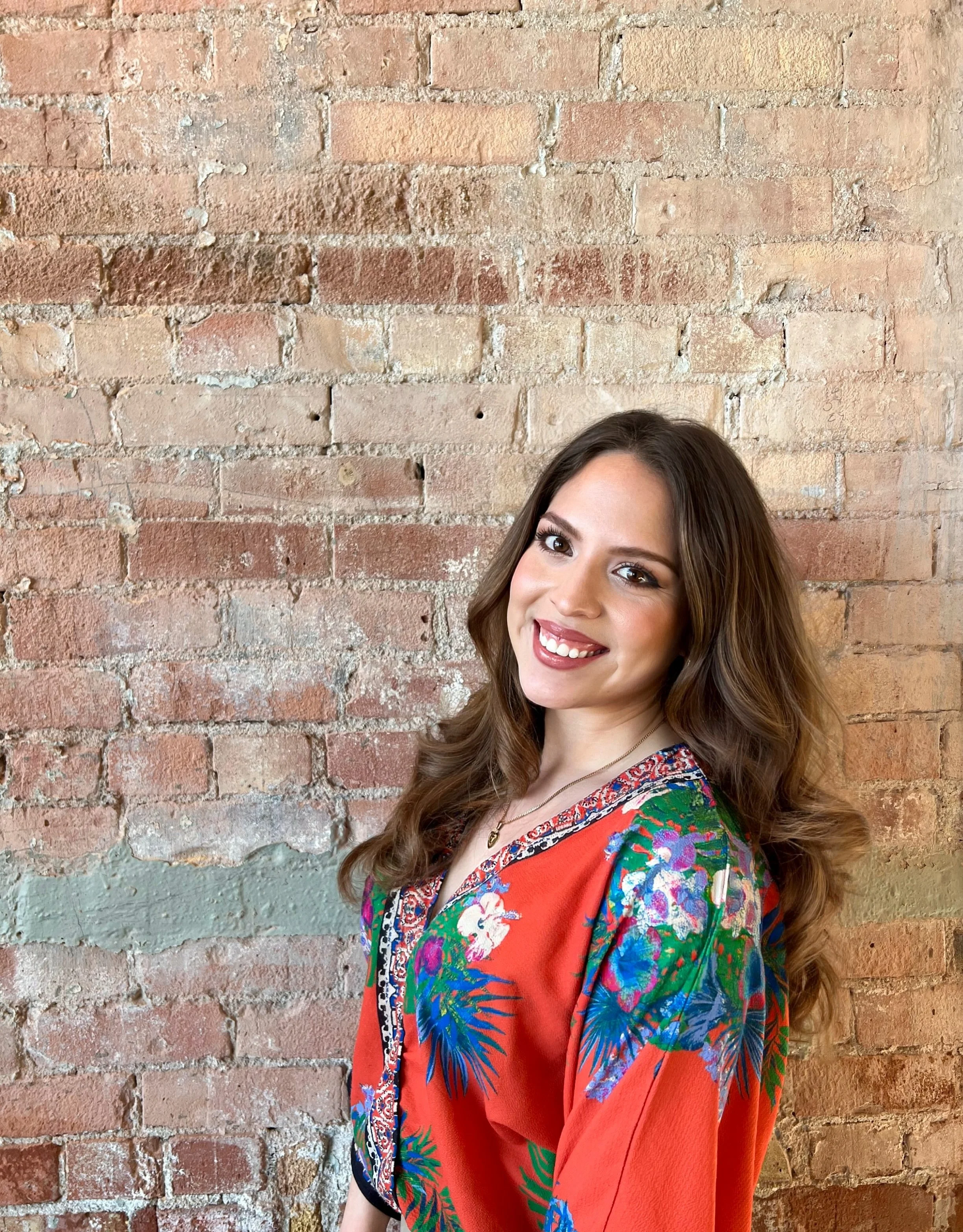Profile: Thaiss Del Rio: Community Leader & Policy Analyst at Voices for Utah Children
The Center for Economic Opportunity and Belonging (The Center) is excited to start this new Profile series where we sit down with community leaders and talk to them about their belonging journey in Utah.
We recently sat down and spoke with Thaiss Del Rio, a community leader and Policy Analyst at Voices for Utah Children, about what belonging means to her and her story of finding belonging in Utah.
Can you explain to us what you do?
As a policy analyst, I work at the intersections of public policy, advocacy, and community engagement to help advance policies that address children’s health and immigrant family issues. Our goal is to create an environment where all children have access to health coverage and care regardless of where they’re from.
What does belonging mean to you?
As an immigrant, I've often tried to find notions of belonging and acceptance in the wrong places, and from flawed systems. But I've come to realize that true belonging for me comes from community. It's in community where I've discovered a true sense of acceptance and fulfillment, where my voice and my experiences have been valued, validated, and empowered.
“I've come to realize that true belonging for me comes from community. It's in community where I've discovered a true sense of acceptance and fulfillment, where my voice and my experiences have been valued, validated, and empowered.”
Can you share with us a bit of your story of finding belonging/ or your continued journey of finding belonging in Utah?
I never felt like I belonged because of my immigration status. From a very young age, I've had to learn how to navigate different systems and institutions that are oftentimes not designed for people like me. My immigration status made me feel invisible, unaccepted, and excluded from opportunities. So, my journey toward finding belonging didn't begin until I was a senior in high school when I started applying for colleges. It was then that I fully realized how my immigration status could hinder my opportunities for higher education and beyond.
Fortunately, I was connected to the University of Utah’s Dream Center, where I met the Director, Alonso Reyna Rivarola. For the first time, I felt seen and supported. I realized that my dreams and aspirations were important and achievable, despite the barriers I faced. I found a sense of belonging and community at the Dream Center and was able to get connected to an array of resources, peers, and programs that encouraged me to keep going. In 2022, I graduated from the University of Utah (debt free!) with my degree in Sociology and Political Science. I’m incredibly fortunate to have an amazing network and community of people who have supported and uplifted me, seeing beyond the limitations imposed by my immigration status. I strive to evoke the same sense of empowerment and belonging that I first encountered at the Dream Center through the work I do today. For example, during this legislative session, I had the opportunity to lead the Immigrant Day on the Hill alongside fantastic partners such as The Center. Together, we created a space dedicated to celebration, education, and empowerment, reaffirming the importance of our voices within our communities.
Ultimately, to me, belonging is found in the power of community. I often reflect on one of my favorite quotes by Angela Davis, which truly summarizes my experiences thus far: 'It is in collectivities that we find reservoirs of hope and optimism.' Despite the uncertainty that remains in my life, I'm fortunate to be surrounded by family, friends, and community who remind me that in the face of uncertainty, lies hope.
You mentioned the Immigrant Day on the Hill celebration. Can you tell me a bit more about that?
The idea for an Immigrant Day on the Hill stemmed from a personal experience I had while working at the state legislature. One day, while coordinating a food delivery for the office, I met the delivery worker outside the Capitol steps. As we chatted, he told me he was an immigrant from Guatemala and this was his first time delivering food at the Capitol. I could tell he was a bit hesitant to follow me inside, and finally, he asked, 'Are you sure I'm allowed to go inside?' This question left a profound impact on me. As an immigrant myself, I often reflect on this conversation. It made me realize that while the state legislature is meant to be accessible to all, many people may not realize they have the right to visit. This interaction sparked a question in my mind: How can we bridge this gap and bring community members to the Capitol? The Immigrant Day on the Hill event evolved from that.
The purpose of Immigrant Day on the Hill was to celebrate, educate, and empower community members about the legislative process and ways they can be involved while also highlighting the positive impact and diverse contributions that immigrants have made to the growth and prosperity of Utah. It was a collaborative effort, with both national and community organizations such as Utah With All Immigrants, The Center for Economic Opportunity & Belonging, I Stand with Immigrants, Holy Cross Ministries, and the Disability Law Center of Utah coming together to create an environment of education and civic engagement. The event provided community members with the opportunity to gain insight into the workings of the state legislature, the enactment of policies, and how they can actively participate in the legislative process. It served as a platform for our voices to be heard, reaffirming our significance beyond mere economic contributions. It was a truly meaningful occasion, underscoring the importance of our existence and the value of our contributions to society.
You sort of touched on this in the last question, but how do you think belonging fits into what you do? Or your organization’s mission?
Belonging is integral to the work of voices for Utah children. It aligns with our commitment and our grounding question, which is “Is it good for all kids?” What's great about Voices is that we are a multi-issue advocacy organization. We focus on issues spanning children's health, immigrant family policies, early learning and care, tax policy, and juvenile justice. As an organization that works at the intersections of these different issues, we recognize that social issues do not exist in a silo and that these issues intersect with one another. Families and children often grapple with issues like securing affordable childcare while simultaneously encountering barriers to accessing essential healthcare services. So it's important for us to think through creative and innovative approaches to address some of these social issues in a way that is holistic and upstream, ultimately lending towards fostering a sense of belonging. We work hard to achieve this goal by working collaboratively across different sectors and involving, and empowering the community to be at the forefront of advocacy.
What are some things you believe we need to do as Utahns to make our state a place where everyone belongs? Or what is something someone did that helped you feel like you belong in Utah?
One way that we can cultivate a sense of belonging in Utah is through the policies that we create. Policy is one of the many key tools we can use to expand opportunities for children and families in Utah. However, meaningful and effective policy change requires a multifaceted approach. It involves not only the policy solution but also legislative champions, stakeholders, and community engagement. However, all these efforts are in vain if we fail to recognize the humanity in people. I think back again to the pervasive anti-immigrant rhetoric which not only deepens the divisions we already have but also how these divisions stray us away from being able to create spaces of belonging for community members that are oftentimes unjustly villainized. When we strip away someone's humanity through the rhetoric we use, we dishonor their dignity and worth, ultimately leading to pernicious policies that adversely impact not just immigrant families and children, but the broader community as a whole.
So what can we do? Well, I think it's important for all of us, especially our legislative leaders, to demonstrate courage and a commitment to centering the lived experiences and perspectives of community members. Inclusive decision-making spaces must be created to ensure that diverse voices are not just heard and valued, but also actively implemented in policy change. As leaders and advocates, it's our responsibility to empower and educate the broader community, encouraging active participation and leveraging their voices and experiences for policy reform. The strength and influence of our communities are magnified when we unite for a common purpose. We must demonstrate to every member of our community that their voices hold weight and deserve to be amplified. By doing so, we pave the way for more inclusive and effective policies that address the needs of all individuals.
How can people get involved?
Visit our website at utahchildren.org to stay informed and sign up for our monthly newsletter! By subscribing, you'll receive regular updates on issues affecting children's well-being in Utah. We’re also active on social media (Instagram, LinkedIn, Facebook) @utahchildren. Follow us to stay engaged and amplify our advocacy efforts!

